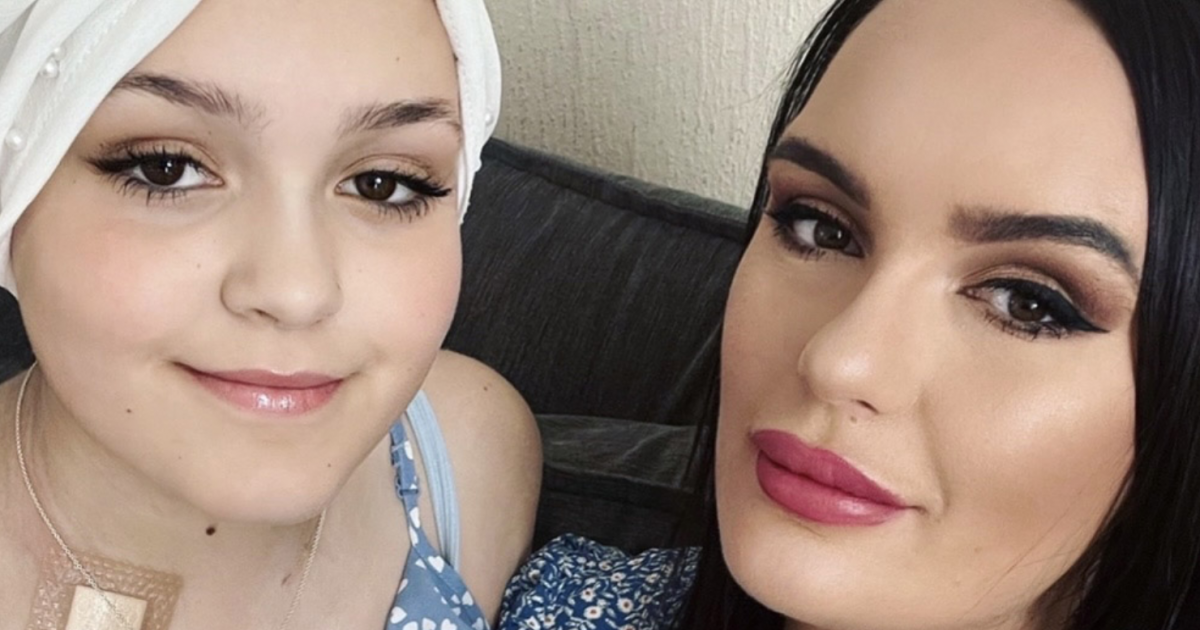Recognizing the Symptoms of Hodgkin Lymphoma in Children
- Hodgkin lymphoma most often affects people in their 20s, 30s, or after age 55 but it can be diagnosed in adolescents and children under 14 as well.
- Imogen, a 12-year-old girl, had symptoms for months before her doctors finally tested her for cancer and she was ultimately diagnosed with the disease.
- It’s important to recognize signs associated with the disease, like swollen lymph nodes, fever, fatigue, night sweats, and unexplained weight loss.
- It’s also helpful to be aware of risk factors for Hodgkin lymphoma, like a family history or weakened immune system.
When Bloxham first took her daughter to the doctor in February, they thought the lumps in her neck were swollen lymph nodes due to some sort of viral infection. The family was told to wait a few weeks to see if the lumps went down.
Read MoreIn the U.S., Hodgkin lymphoma is the most common cancer diagnosed in teens between the ages of 15 and 19, accounting for 11% of all cancers diagnosed in this age group, according to the American Society of Clinical Oncology (ASCO). In Imogen’s age group, children 14 and under, Hodgkin lymphoma makes up about 3% of all cancer cases.
It is a disease that develops in the lymph system. Common symptoms of the disease include some of the issues Imogen was experiencing. In children, common signs of Hodgkin lymphoma are:
- Swollen lymph nodes near the collarbone, neck, chest, underarm, or groin
- Fever
- Unexplained weight loss
- Night sweats
- Fatigue
- Anorexia
- Itchy skin
- Coughing
- Trouble breathing
Treating Hodgkin lymphoma in children
Bloxham explained that she knew something was wrong with Imogen before the diagnosis, but it still doesn’t prepare a family for cancer.
“When Imogen got her diagnosis, I had already prepared myself. As a mother, I knew deep down something was wrong,” she explained. “Imogen didn't show any emotion about her diagnosis. She has been so strong through the whole situation. I have been anxious and stressed since February as I’ve tried to push for her to be seen properly but it was just a long process to get where we needed to be.”
Imogen is currently going through two rounds of chemotherapy and it will be determined later on if she needs radiotherapy as well, and if it will be safe in her situation.
Currently, six types of treatment can be used to treat Hodgkin lymphoma in children, including:
- Chemotherapy
- Radiation therapy
- Targeted therapy
- Immunotherapy
- Surgery
- High-dose chemotherapy with stem cell transplant.
There are also new treatments being studied in clinical trials, including proton beam radiation therapy.
Risk factors for Hodgkin lymphoma
There are a few factors that can increase a person risk of developing Hodgkin lymphoma, including:
- Age (the disease is most common in people in their 20s and 30s or after age 55)
- Family history (those who had a close family member with the disease may have a higher risk)
- Epstein-Barr virus (EBV) infection (EBV is the virus that causes mononucleosis)
- HIV (people with HIV may have a higher risk for the disease)
- Weakened immune system
There has also been some speculation that exposure to weed-killers, like Roundup, can cause lymphoma either Hodgkin lymphoma or non-Hodgkin lymphoma to develop. However, this has not been conclusively proven.
Dr. Catherine Diefenbach explains what we know about Roundup’s link to lymphoma.
"There hasn't been a study that has conclusively proved a causal link between Roundup and lymphoma, although it does look like Roundup probably increases lymphoma risk," says Dr. Catherine Diefenbach, a hematologist/oncologist at NYU Langone Health. "Instead, we need to understand why there's a higher number of lymphoma cases among people who use Roundup."
Studies show an association between exposure to certain weed killers and non-Hodgkin lymphoma however, association does not mean cause.
Questions to Ask Your Doctor
- Could be symptoms be linked to cancer?
- What tests can we do to rule out a more serious diagnosis?
- What lifestyle adjustments can I make to help mitigate symptoms?
Learn more about SurvivorNet's rigorous medical review process.


